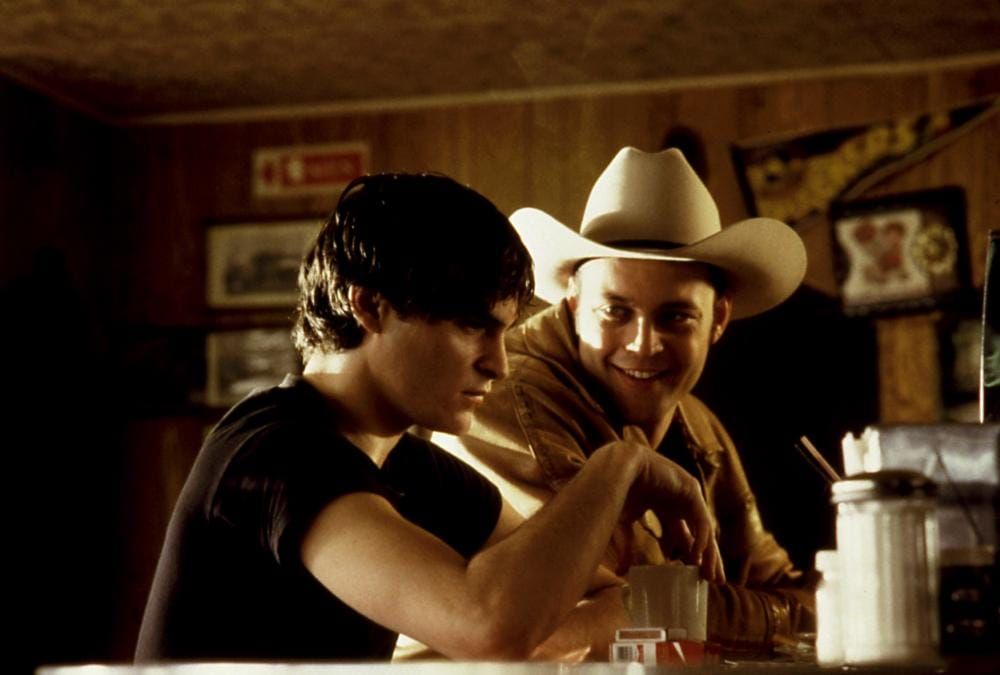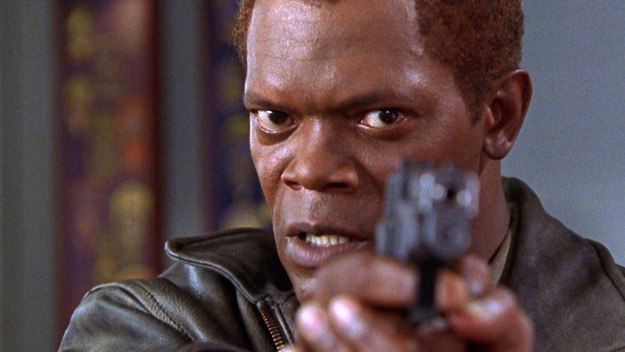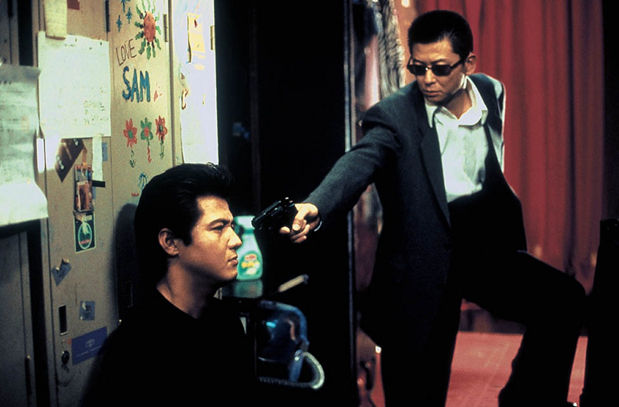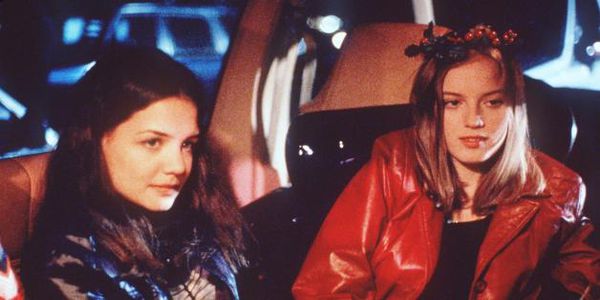6. Clay Pigeons (David Dobkin, 1998)

In the rockies of Montana, mechanic Clay Tidwell (Joaquin Phoenix) becomes embroiled in several murders he didn’t commit. He’s befriended by serial killer Lester Long (Vince Vaughn). As an act of friendship, Lester takes it upon himself to murder the people that are implicating Clay. Clay Pigeons was produced through Ridley and Tony Scott’s company: Scott Free Productions. It was helmed by David Dobkin, who would later direct Vaughn in Wedding Crashers.
Even early on in his career, Joaquin Phoenix provides a highly believable, empathetic lead performance. Meanwhile, Vince Vaughn, in one of his most memorable roles, strikes a balance between creepiness, cowboy humour and seductiveness, foreshadowing his gritty work with crime auteur S. Craig Zahler. That said, it is famed standup comedian Janeane Garofalo who takes the crown, with her dryly sarcastic, confident, feminist interpretation of cannabis-loving FBI agent Dale Shelby.
However, the most prominent star of the film is Matt Healy’s script, which, while inspired by classic noirs, is original, involving and nail-biting. It successfully toes the tricky line between comedy, tragedy and gory violence. Moreover, it emotionally aligns the audience with Clay and his plight, distilling his character into a representation of the audience themselves.
John Lurie’s novel, affecting score of blues banjo, African mouth bow and harmonica is interspersed with a soundtrack of country and western classics. Clay Pigeons received an uncertain assessment in 1998 and has since faded into memory. Today, it deserves to be counted as comfortably one of the best crime movies of the ‘90s.
7. The Negotiator (F. Gary Gray, 1998)

In Chicago, Danny Roman (Samuel L. Jackson) works as a negotiator for the police – talking down criminals in dangerous situations. Suddenly, he’s framed for a murder. Danny takes the man who accused him, Inspector Terence Niebaum (J.T. Walsh), hostage in the police’s internal affairs department. Lieutenant Chris Sabian (Kevin Spacey) is dispatched to broker the release of Niebaum and the other hostages. Can Sabian negotiate with the city’s most revered negotiator?
In addition to a comic turn by gifted Sideways star Paul Giamatti, The Negotiator assembles the cream of underrated American character actors: Siobhan Fallon Hogan, David Morse, Ron Rifkin and Dean Norris. Thrilling, ambitious and constantly suspenseful, The Negotiator’s an extremely well-directed picture from Gray. This is apparent in his choreography of the large-scale action sequences and the elicitation of outstanding performances from his players.
Screen icon Samuel L. Jackson carries the film with ease, imbuing Danny with gravitas, evidencing his long tenure as a theatre performer. Furthermore, J.T. Walsh stands out as the slippery, deplorable Niebaum. His depiction denotes a critical “running commentary on the power structure of American society.” Crucially, what sets him apart is how he communicates Niebaum’s subtext. Even when he’s not speaking, his character’s thoughts are clearly at the forefront of his mind, translated through his eyes and facial expressions.
As well as analysing police corruption, The Negotiator deals with the rift between the instincts of bloodlust and humanism. These themes are even more relevant in the contemporary political climate than they were in ‘98. Despite being awarded some positive reviews upon its release, The Negotiator is largely overlooked today. It’s perplexing that it isn’t remembered as a classic of ‘90s action cinema.
8. Dead or Alive (Takashi Miike, 1999)

The story chronicles the war between a Tokyo detective (Show Aikawa), a criminal (Riki Takeuchi) and a yakuza organisation forging an alliance with Chinese triads. Takeshi Kitano’s regular collaborator, Susumu Terajima, is part of the supporting cast. The film was directed by the controversial Takashi Miike, best-known for his seminal horror movie Audition – released the same year as Dead or Alive.
The nihilistic, rock ‘n’ roll-spirited Dead or Alive is hyper-stylised, ascending it to a fabulist nightmare of comic book hyperbole. The beginning is undoubtedly the most debauched, frenetic, outrageous opening sequence in all of cinema history. It opens with a naked body plummeting from a tower block, before collaging strippers, a machine gun massacre, rape, mutilation and a garden hose-length snort of cocaine, edited percussively to distorted rock music.
Overall, the movie’s so shockingly hardcore, cruel, grotesque and transgressive, it will force even the most hardened crime fan to look away. It indulges in everything from a bath of faeces to bestiality pornography. Similarly, typical of Miike’s filmography, the violence is excessive, personified when a man rips off his own arm. In contrast to its family-centred heartbeat and exploration of Sino-Japanese relations, bizarrely, Dead or Alive incorporates fantastical sci-fi elements – unheard of in the gangster genre.
In spite of polarising critics, the unforgettable Dead or Alive is one of the most important films of both yakuza cinema and the ‘90s, symbolising the era through its cool style and slick costumes. However, audiences are advised to proceed with extreme caution, as the movie’s guaranteed to nauseate squeamish viewers.
9. The Debt Collector (Anthony Nielson, 1999)

In the ‘70s, Nicky Dryden (Billy Connolly) is Edinburgh’s most notorious criminal. He’s arrested by Gary Keltie (Ken Stott) and sentenced to 18 years in prison. When he’s released, he initiates a career as a sculptor and enjoys his marriage with Val (Francesca Annis). Regardless, Keltie returns to persistently hound Nicky, dredging up his past crimes at public events. This pushes Nicky to take action against Keltie.
Produced by Film 4, The Debt Collector is a tearjerking drama based upon the exploits of real-life Scottish gangster Jimmy Boyle. Boyle’s life story was previously translated into the 1979 film A Sense of Freedom. The Debt Collector was directed by Anthony Nielson: the most important playwright of the ‘In-yer-face theatre’ movement. Principally, The Debt Collector’s a very tragic film. It deals with the emotional trauma induced by violence and critiques macho culture.
It asks whether the guilty can ever truly achieve redemption. Withal, Ian Robertson’s performance demonstrates how the romanticism of criminals can lead young people to emulate them, repeating their dire mistakes. The movie’s brutality is exacerbated by the fact that, in Scotland, criminals tend not to widely use guns, but rather knives. The knife battle scene outside Edinburgh Castle stands as one of the most shocking, gruesome confrontations in British cinema.
Typically, Billy Connolly is a wonderful leading man, but it’s Scottish-Italian thespian Ken Stott (The Hobbit) who steals the show as Keltie. His ingenious characterisation is overflowing with desperation, despair, sexual repression, volatility and a deep-seated misery. This manifests itself in a portrayal of cyclonic rage that’s so daring and raw, it dwarfs the expertise and emotional access of any other actor in the film industry. As a result, Stott’s career-best work operates as a synecdoche for confused, disillusioned, broken men all across the globe.
10. Go (Doug Liman, 1999)

In non-linear fashion, Go tracks the timelines of 3 groups of characters. It’s set during the Christmas season in Los Angeles. The protagonist, supermarket employee Ronna (Sarah Polley), is forced to deal narcotics to avoid being evicted from her apartment. The film is Doug Liman’s followup to Swingers (1996).
Roger Ebert described Go as a “clever black comedy that takes place entirely in Tarantino-land” for “its interlocking timelines, quirky sex and violence, pop culture expertise, familiarity with drugs and ironic profundity.” Of all the crime stories that strive to imitate Pulp Fiction, from the mid-‘90s to the present day, Go ranks as one of the best.
It sees the breakout of many actors who would later emerge as notable stars: Katie Holmes, Timothy Olyphant, Taye Diggs, Brekin Meyer, Melissa McCarthy. In 2023, lead Sarah Polley won an Academy Award for her screenwriting. Today, Go feels like a time capsule of ‘90s youth culture, illustrated through its acid house soundtrack, impression of neon-pulsing raves, postmodern fashion and the omnipresent consumption of ecstasy.
The latter component gives rise to entertaining hallucination sequences, like a supermarket dance to the song Macarena and a run in with a telepathic cat. Blasé and mean-spirited, Go contains a selection of well-written, funny dialogues. This is best expressed by William Fichtner’s (Crash) eccentric character – the movie’s acting high point. Ultimately, Go is a fun, twisting ride best suited to audience members in their early 20s. It underperformed at the box office but has since developed a cult following.